Editor's note
|
|
Tomorrow is Earth Day, which some Americans will mark by celebrating conservation successes – and others by pointing out what’s still to be done. The Conversation is noting this day of environmental awareness by taking a closer look at challenges spanning from the deep oceans to the stratosphere.
Since taking office last year, the Trump administration has moved to eliminate or narrow many environmental regulations. Amanda Rodewald of the Cornell Lab of Ornithology spotlights one example: protection for migratory birds.
Looking to the future, University of California, Irvine Earth scientist Keith Moore explains how prolonged warming of the oceans could change the distribution of tiny phytoplankton, with impacts rippling up marine food chains.
Ecologists Sujay Kaushal, Gene Likens, Michael Pace and Ryan Utz describe how they identified an emerging water pollution problem: increasingly salty U.S. rivers.
And Colorado State University atmospheric scientist A.R. “Ravi” Ravishankara offers some good news. A treaty signed in the mid-1980s has reduced the use of chemicals that deplete Earth’s protective ozone layer, which is on the road to recovery.
|
Jennifer Weeks
Environment + Energy Editor
|

|
|
Earth Day 2018
|
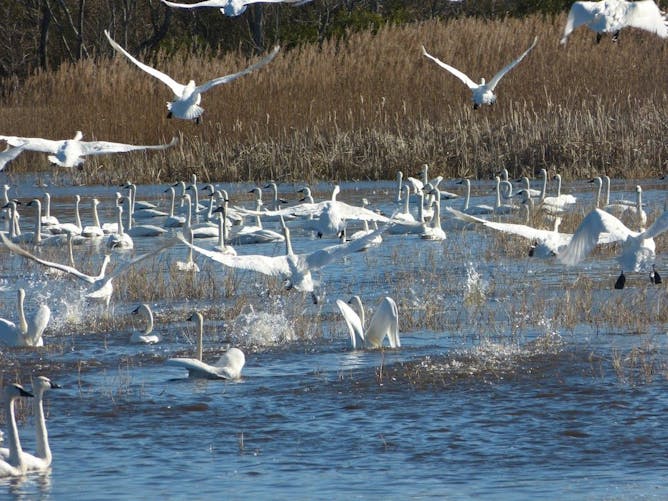
Tundra swans, which nest in the Arctic and migrate south in fall, alight at Mattamuskeet National Wildlife Refuge in North Carolina.
Allie Stewart/USFWS
Amanda Rodewald, Cornell University
The Interior Department is narrowing protection for migratory birds to cover only deliberate harm such as hunting, but not threats like development or pollution that kill millions of birds yearly.
|
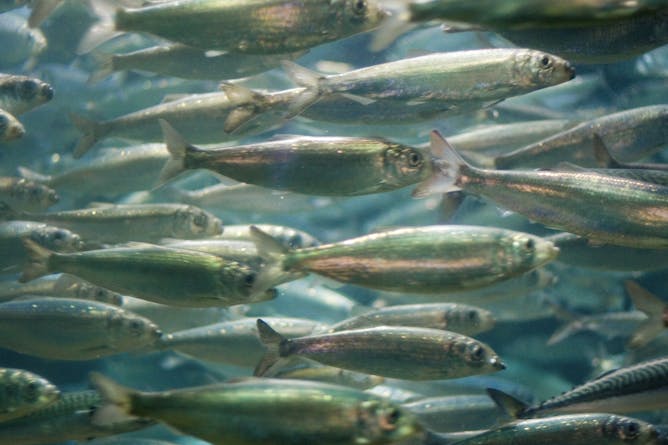
Sustained ocean warming could greatly reduce catches of fish like these herring photographed off Norway.
Jacob Botter
Jefferson Keith Moore, University of California, Irvine
Fish are a key food source for millions of people worldwide. But a recent study finds long-term warming over the next 200 years could starve tiny plankton, with impacts that would ripple up food chains.
|
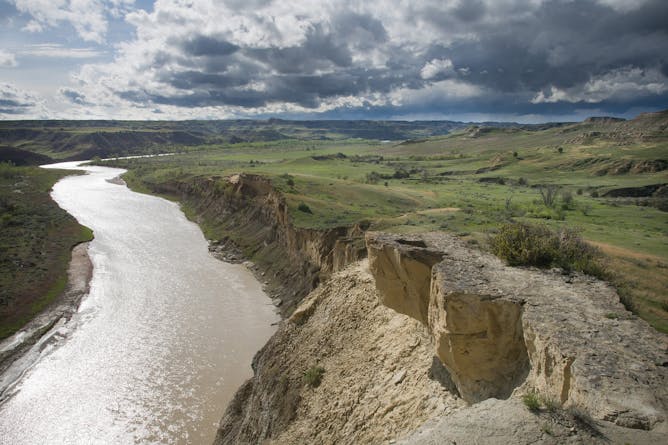
Little Missouri River, North Dakota.
Justin Meissen
Sujay Kaushal, University of Maryland; Gene E. Likens, University of Connecticut; Michael Pace, University of Virginia; Ryan Utz, Chatham University
Recent research shows that US rivers are becoming saltier and more alkaline. Salt pollution threatens drinking water supplies and freshwater ecosystems, but there is no broad system for regulating it.
|
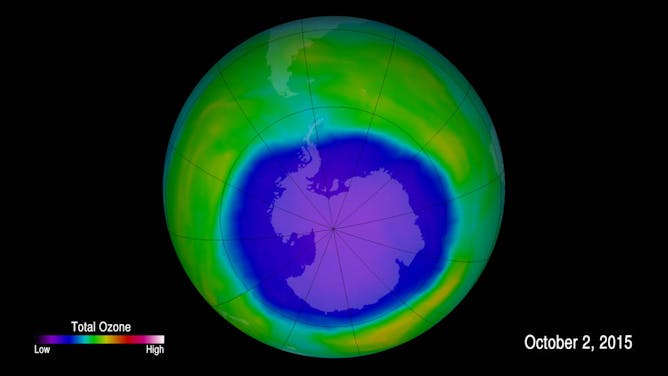
False-color image of ozone concentrations above Antarctica on Oct. 2, 2015.
NASA/Goddard Space Flight Center
A.R. (Ravi) Ravishankara, Colorado State University
Earth's ozone layer shields us from harmful ultraviolet radiation. Nations have been working to reduce ozone-depleting chemicals since the 1980s, but recent studies show that there is still work to do.
|
Arts + Culture
|
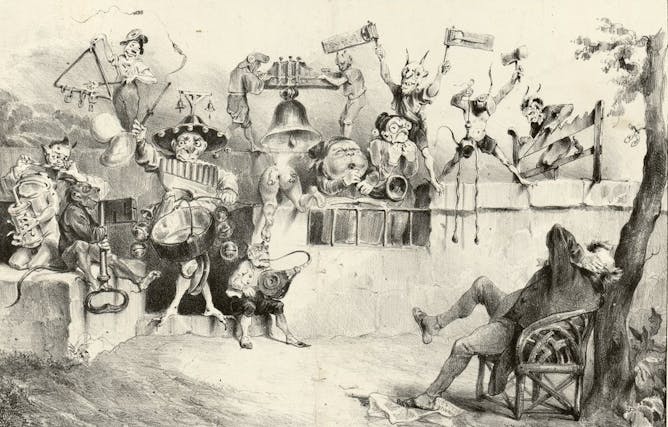
A lithograph by French caricaturist J. J. Grandville depicts the torture of too much noise.
Bibliothèque nationale de France
Matthew Jordan, Pennsylvania State University
Is noise the real monster? Or is it our own intolerance of unwanted sounds?
|

In 1938, a cultural icon was born.
ChameleonsEye/Shutterstock.com
Brad Ricca, Case Western Reserve University
Pop culture, personal tragedy and heroic persistence all played a role.
|
Education
|
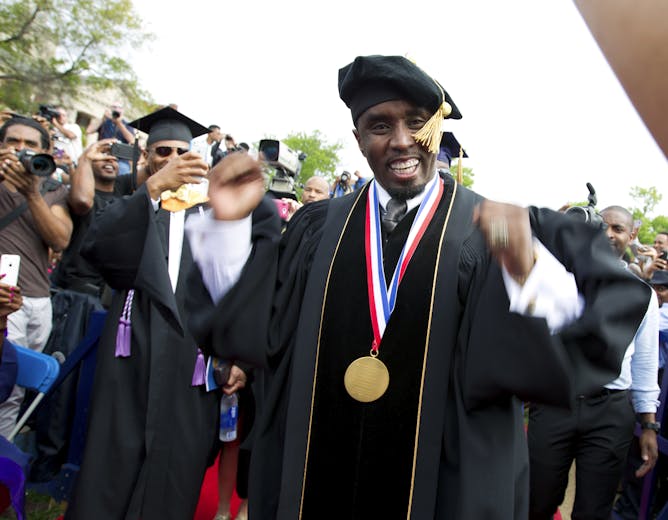
Entertainer and entrepreneur Sean Combs gives Howard University’s commencement speech in 2014.
Walter M. Kimbrough, Dillard University
While hip-hop is often viewed through its problematic elements, Dillard University President Walter Kimbrough explains why rap artists are ideal commencement speakers.
|
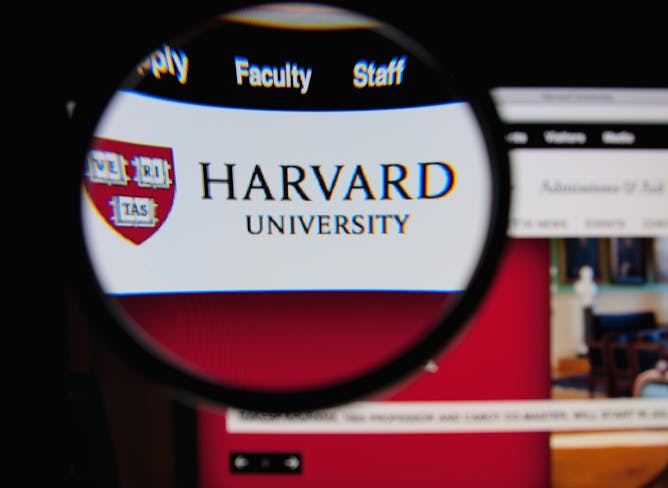
Harvard faculty member accused of decades of sexual harassment.
Gil C/Shutterstock
Jeffrey W. Rubin, Boston University
The Harvard case shows that when sexual harassment occurs on campus, it not only leaves a trail of victims but hurts the institutional culture as well.
|
Science + Technology
|

Little kids have a tendency to look on the bright side.
Brian A Jackson/Shutterstock.com
Janet J. Boseovski, University of North Carolina – Greensboro
Human beings seem to be born wearing rose-colored glasses. Psychologists are interested in how this bias toward the positive works in the very young – and how it fades over time.
|

Is this a face or a building?
David W
Peter Christensen, University of Rochester
Building features can be analyzed in the same way that facial recognition software works, revealing previously hidden elements of history.
|
Economy + Business
|
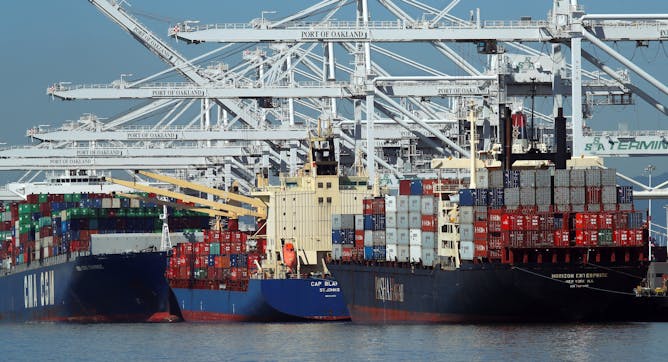
The White House frets about how the U.S. imports more stuff than it exports.
AP Photo/Ben Margot
Ian Sheldon, The Ohio State University
The administration embraces mercantilism, an ideology with few adherents.
|

More Chinese wines are finding their way into the liquor aisle.
AP Photo/Elizabeth Dalziel
Cynthia Howson, University of Washington; Pierre Ly, University of Puget Sound
China's young winemakers tell a very different story of how joint ventures with Western companies led to genuine partnerships – and success.
|
Health + Medicine
|

Barbara Bush and her husband, George H.W. Bush, at his Houston campaign headquarters June 4, 1964.
AP Photo/Ed Kolenovsky/file
Frank Sciurba, University of Pittsburgh
The former first lady was reported to have a condition that makes breathing hard and often occurs in smokers. COPD is a condition that affects almost 16 million Americans.
|
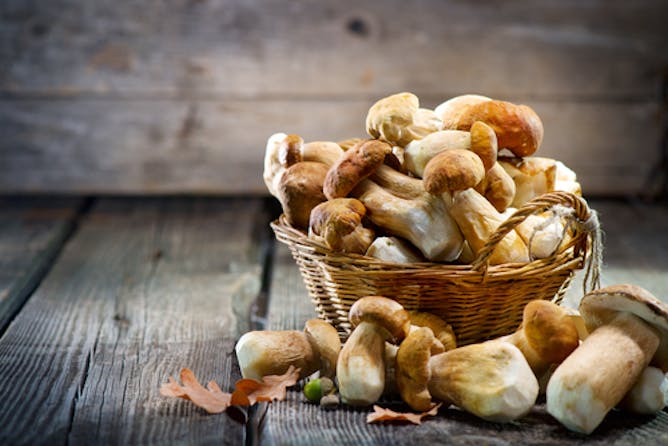
Mushrooms for many are just an addition to a slice of pizza, but the fungi are now gaining a reputation for their nutrients.
Subbatina Anna/Shutterstock.com
Robert Beelman, Pennsylvania State University
Mushrooms, long popular on pizza and in cooking, are getting more attention for their health benefits. Here are some reasons you might want to add them to your grocery list and not just your pizza.
|
Politics + Society
|
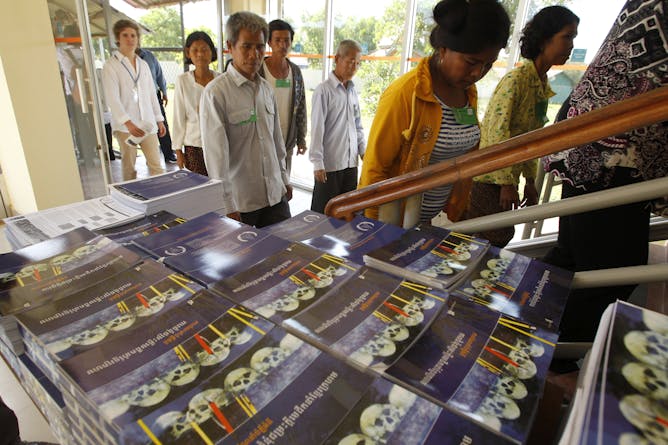
Cambodian villagers walk to a courtroom before appeal hearings for two Khmer Rouge senior leaders facing charges of genocide, war crimes and crimes against humanity.
AP Photo/Heng Sinith
John Ciorciari, University of Michigan
Research on profound human suffering requires more than intellectual understanding of legal and political mechanics. It requires a human journey that goes deeply into victims' experiences and needs.
|
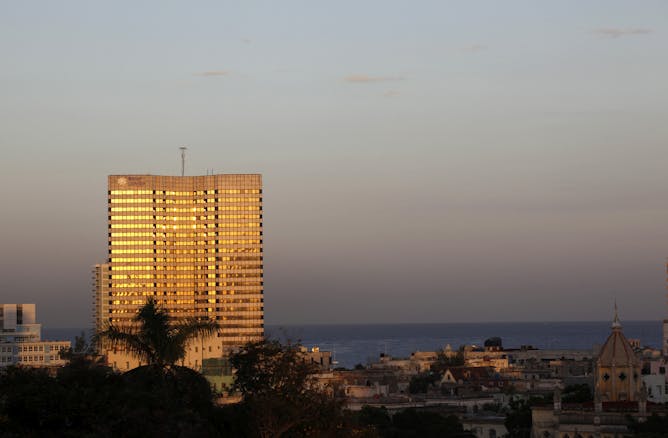
The Spanish hotel chain Meliá has big plans for Cuba. So did the Trump Organization, up until its CEO was elected president of the United States.
Desmond Boylan/Reuters
William M. LeoGrande, American University School of Public Affairs
As president, Donald Trump has taken a harsh stance toward Cuba. But his real estate company has tried twice to open Trump properties on the Communist island, allegedly even skirting the law to do so.
|
Ethics + Religion
|

What does it mean for a pope to apologize?
AP Photo/Andrew Medichini)
Mathew Schmalz, College of the Holy Cross
Popes are not infallible, yet apologies are rare.
|
| |
| |
| |
| |
| |
| |
|
|